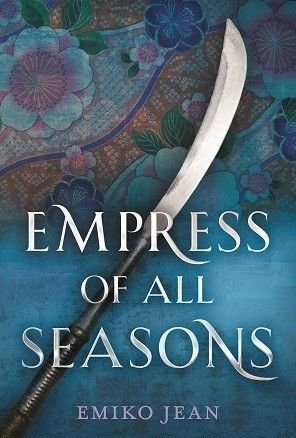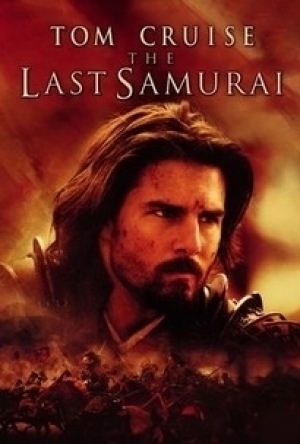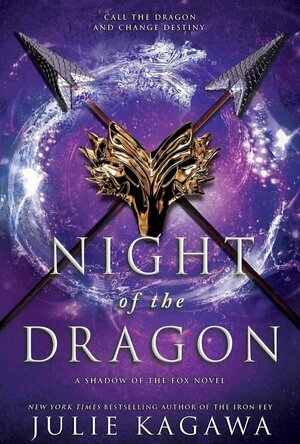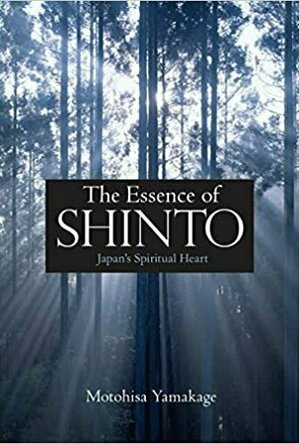
The Essence of Shinto: Japan's Spiritual Heart
Book
In The Essence of Shinto, revered Shinto master Motohisa Yamakage explains the core values of Shinto...

Loop
Book
Stunning Japanese novel with a chilling twist - the follow-up to Ring and Spiral. Kaoru's father,...
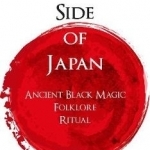
The Dark Side of Japan: Ancient Black Magic, Folklore, Ritual
Book
The Many Hells of Japan is a collection of folktales, ritual black magic, protection spells,...
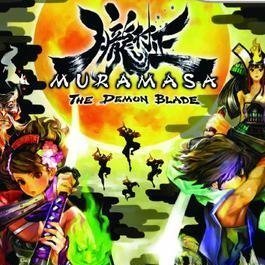
Muramasa: The Demon Blade
Video Game
Based on ancient Japanese lore, Murumasa: The Demon Blade plunges players into the mystical Genroku...
Awix (3310 KP) rated Gods Of Egypt (2016) in Movies
Feb 10, 2018 (Updated Feb 10, 2018)
Well, the plot is nothing special and the film often seems to be on the verge of sending itself up, but on the other hand it's visually interesting and the choice to treat the weirder bits of Egyptian mythology as being literally true (boss-god Ra is obliged to drag the sun around the Earth every day, on a length of chain attached to the back of his flying boat) means the story is at least a bit different.
You can, I suppose, complain that none of the people playing Egyptians in this film are actually Egyptian; many did, and I suppose I must have missed them complaining in a similar vein when Japanese and coloured actors were cast as inhabitants of Scandinavian fantasyland in the Thor movies. But c'mon, guys, it's a film about Gerard Butler in a flying space chariot pulled by giant beetles - it is possible to take this sort of thing a bit too seriously. (I look forward to retiring to my bunker and listening to the flaming-torch-wielding mob as they mill around outside.)
Anyway, not a great movie by any stretch of the imagination, but hardly terrible, either, and at least it is pleasing to the eye and has a certain novelty.

The World of Myth: An Anthology
Book
Since its publication in 1991, The World of Myth has provided thousands of students with a...
Goddess in the Stacks (553 KP) rated Empress of All Seasons in Books
Mar 20, 2019
Despite that, I really enjoyed this book. I loved the characters, the variety of yõkai, the bits of myth interspersed throughout the book. I do question Akira being trained to be a master of shuriken in a matter of days - like, really? And I wish instead of summarizing a ton in the epilogue, she'd just written a sequel, because I think there's enough material to do it. You'd think, with so much I didn't like about the book, that my overall opinion would be negative - but it's not. Even with all of those bad points, this book was enthralling and kept me reading right to the end.
Empress of all Seasons is a great Japanese-inspired fantasy that relies a little too much on old tropes. Set your inner critic to the side and just enjoy the ride, because the story is fantastic.
You can find all my reviews at http://goddessinthestacks.com
Sophia (Bookwyrming Thoughts) (530 KP) rated Shadow of the Fox (Shadow of the Fox, #1) in Books
Jan 23, 2020
Shadow of the Fox by Julie Kagawa brings Japanese mythology and folklore to life, taking readers on an exciting journey through feudal Japan, Kagawa weaves together three characters from different backgrounds all while introducing readers to a wide variety of demons the characters come across. The novel follows these characters as a new age approaches and the Kami Dragon is summoned, granting a wish to the one who holds the pieces of the Dragon Scroll.
Shadow of the Fox is primarily told in the two perspectives of Yumeko and Tatsumi, with the occasional addition of a third. Yumeko is a half-kitsune, half-human raised at the Silent Winds temple to hide her true kitsune nature, though she is forced to flee after everyone is slaughtered by a demon who wants to retrieve a part of the scroll. Readers interested in seeing kitsune magic coming to life on the page may find themselves disappointed as Yumeko shows little of her magic and hides her true nature from her companions.
One of those companions includes Tatsumi, a samurai from the Shadow Clan ordered to bring the Dragon Scroll regardless of the cost. Raised as a weapon, Tatsumi is taught from a young age to hide all of his emotions and thoughts from those around him as doing so would pose a danger. Not able to accomplish his mission right away, he finds himself in an unlikely alliance with Yumeko and begins to question his upbringing.
The first novel in a stunning new series, Shadow of the Fox is a magical adventure with an ominous feel throughout and will have readers wanting the sequel to the story.
<a href="https://60secondsmag.com/review-shadow-of-the-fox/">This review was originally posted on 60 Seconds Online Magazine</a>.
Ryan Hill (152 KP) rated The Last Samurai (2003) in Movies
Jun 23, 2019
In the role of Algren, Cruise begins a dejected man living out of a bottle, bereft of purpose & suffering post-Civil War nightmares of a man touted as a hero despite feeling the guilt of slaughtering Indians crushed under the might of a military machine; in that sense, The Last Samurai is very anti-war in its message, John Logan's story painting the Americans and specifically the Imperialist Japanese not in the greatest light. Cruise takes Algren on a traditional voyage of discovery, first pitted against the samurai code & eventually becoming consumed by it, consumed by the similarity of the way of the warrior between both cultures - and Ken Watanabe's dignified samurai 'rebel' Katsumoto learns from him, as well as the other way around, with Cruise remaining stoic & only getting flashes of a chance to display the usual Cruise charm, but that's OK - Algren isn't the kind of character to benefit from that, Cruise's natural magnetism is enough here. Wit is provided thankfully through, albeit briefly, Billy Connolly as a tough old Irish veteran & chiefly Timothy Spall as our portly 'narrator' of sorts, who serves to help mythologise Algren & the legend itself. Zwick is most concerned with that, you see, the idea of legends and how men become them, exploring that concept alongside digging into the cultural rituals and practises of a changing Japan.
Algren's story is placed at a time when the old ways of Japan were shifting, under the pressures of global politics & business; the Emperor here is a naive young man, sitting on an empty throne, looking to Watanabe for validation as his advisor's push to quash a rebellion fighting to preserve the old ways, preserve Japanese interests as America knocks on the door. That's why Cruise's role here is so interesting, his character learning of the samurai code & helping those around him remember their history, and Zwick explores well the concept of national identity alongside personal ideas of myth, legend & destiny. It all boils together in a careful script, never overblown, which neatly develops the relationships involved & helps you fully believe Algren's transformation into the eponymous 'last samurai'. Along the way, Zwick doesn't forget theatrics - staging plenty of well staged & intense fight scenes which utilise the strong Japanese production design, before building to a quite epic war climax with army pitted against army, with personal stakes cutting through it, backed up indeed by another superlative score by Hans Zimmer. It becomes more than just a historical swords & armour film, reaching deeper on several levels.
What could have been a slow paced, potentially ponderous movie is avoided well by Edward Zwick, who with The Last Samurai delivers one of the stronger historical adventure epics of recent years. Beautifully shot in many places, with some excellent cinematography & production standards, not to mention an impressive script well acted in particular by Tom Cruise & Ken Watanabe, Zwick creates a recognisably Hollywood picture but for once a movie that doesn't dumb down, doesn't pander and ultimately serves as an often involving, often damn well made story. Especially one to check out if you love the way of the samurai.
Sophia (Bookwyrming Thoughts) (530 KP) rated Night of the Dragon (Shadow of the Fox #3) in Books
Apr 10, 2020 (Updated Apr 10, 2020)
This review and other musings can be found at Bookwyrming Thoughts.
I think I’ve been completely ruined once again by Julie Kagawa, so I had to nurse my soul for about a week before I could muster up the courage to write a review.* With Night of the Dragon, the third and final book of her Shadow of the Fox trilogy, Kagawa has taken my heart and chucked it straight into another galaxy. I don’t know the rest of my current reads; what are they?
I’m… not sure when my heart will return this time.
Night of the Dragon is a continuation of Soul of the Sword.
We continue to follow Yumeko and her friends as they race against time to stop Genno from summoning the Kami Dragon and destroying Iwagoto. Safe to assume eventually it will be the world. And not just the short time they have: they have a challenging journey ahead because Genno will stop at nothing to prevent them from ruining his plans. Like the first two books, Kagawa introduces us to new yokai from Japanese mythology: each of them just as cruel, vicious and caring for nothing but spilling the blood of anything that stands in their way.
Tatsumi has a bit of an identity crisis here.
He’s not sure if he’s Haikaimono now that they’ve merged their souls or if he’s still Tatsumi. But over the course of his journey from Shadow of the Fox when he first meets Yumeko through the third book, he’s changed drastically. He’s not the only one who’s changed either; his literal resident demon inside of him has changed too, but he’s still the same badass Kage from the first book. He’s just more bloodthirsty.
I’m here for all the slow burns!
My heart is all mushy with the ships being sailed. Finally! Inside my heart cried because, at this point in the series, I’m cheering the group on to success. All the odds are against them, but I want my favorite cinnamons to conquer.
My heart still cries from wherever it landed.
I’m not surprised by the ending, but it doesn’t mean it didn’t hurt any less than it did. Either way, it was beautiful and perfect, and I couldn’t ask for anything less. (But I mean, it’s Julie Kagawa! I should know at reading 90% of her works that endings to a series are going to be *chef’s kiss*.)
Soul of the Sword was a struggle for me to get through, but it is so worth going through for Night of the Dragon. All the questions I had from the very beginning of the series get answered as everything comes together for an ending that made me want to cry and question my life choices.
*How do I bring justice to such perfection?! All the words have flown out the window. What even is a review?

